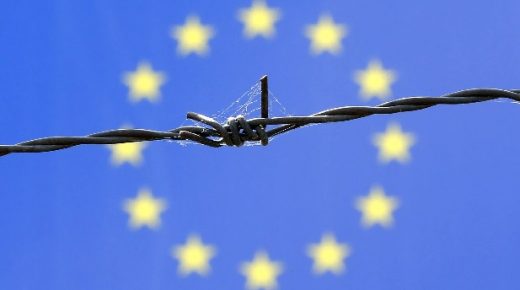 New rules designed to protect EU firms dealing with Iran from US sanctions related to Iran’s nuclear activities have passed a key step, the European Commission said on Wednesday confirming: Part of efforts to ensure Iran can sell oil to EU; Proposed updates to blocking statute pass key step; Statute protects EU companies from foreign court rulings.
New rules designed to protect EU firms dealing with Iran from US sanctions related to Iran’s nuclear activities have passed a key step, the European Commission said on Wednesday confirming: Part of efforts to ensure Iran can sell oil to EU; Proposed updates to blocking statute pass key step; Statute protects EU companies from foreign court rulings.
Europe is a key outlet for Iran’s oil, taking around 700,000 b/d, or more than a quarter, of the country’s crude exports. A number of European companies have also signed agreements to help Iran develop its oil and gas sector.
These activities have been put in doubt by US President Donald Trump’s decision in May to withdraw from the international nuclear deal with Iran known as JCPOA and re-impose sanctions targeting Iran’s oil sector.
The EC has formally added the US sanctions to the EU’s blocking statute and sent it to the European Parliament and EU Council, representing national EU governments, for approval.
If neither institution objects within two months, the EC can adopt the updated statute into law.
The EC wants the updated statute in force by early August, before the first batch of re-imposed US sanctions take effect on August 6.
Once in force, the statute would nullify the impact in the EU of any foreign court judgments based on these sanctions, and allow EU companies to recover damages arising from these sanctions from the person causing them.
EU persons would also be forbidden from complying with these US sanctions, although the EU is unlikely to penalize its own companies.
The EU is also working on other measures to shield companies from adverse impacts from these US sanctions.
These include a working group on oil trade, which the EU hopes will allow Iran to maintain its current crude export levels of around 2.6 million b/d, EU climate action and energy commissioner Miguel Arias Canete said on May 19 during a trip to Tehran to meet Iranian ministers.
Buyers of Iranian oil have until November 4 to wind down their contracts before the US re-imposes sanctions on the oil, energy, shipping and insurance sectors.
“We also want to solve all the problems that are impairing normal trade in oil. Not only the financial problems, but of transport and insurance,” Canete said, adding that the first meeting was taking place to “fix the agenda, topics and timetable to solve different problems.”












